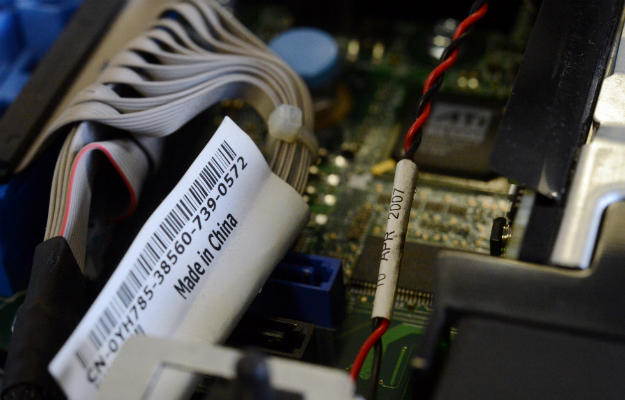
From John Arguilla, Foreign Policy: What’s coming from Beijing is, in a word, "bitskrieg." The Pentagon report describes this as a three-phase process. First, there is a "focus on exfiltrating data" so as to gain vital information needed about military command and control systems as well as the points in our critical infrastructure that are vulnerable to disruption by means of cyberattack. It is believed that the Chinese have been engaging in this sort of intelligence gathering for many years — intrusions that Washington first openly acknowledged 10 years ago, giving them the code name "Titan Rain." It has been raining steadily for the past decade.
With all these data in hand, the second step — per the Pentagon report — is to use the same intrusive means that mapped our defense information systems to disrupt them with worms, viruses, and an assortment of other attack tools. The goal at this point is to slow the U.S. military’s ability to respond to a burgeoning crisis or an ongoing conflict. Think of what might happen, say, on the Korean Peninsula, if our small contingent there — a little over 25,000 troops — were to lose its connectivity at the outset of a North Korean invasion by its million-man army. Without the ability to operate more nimbly than the attacker, these forces would be hard-pressed from the outset. Cyberattacks on mostly automated force-deployment and air-tasking systems could also slow the sending of reinforcements and greatly impede air interdiction operations. In the first Korean War, the Chinese intervened with massive numbers of troops. In the second one, they might only have to send electrons.
The real payoff for Beijing, though, is in what the Pentagon report describes as China’s envisioned third phase of cyber-operations. This is the point at which the information advantage — that is, the ability to coordinate one’s own field operations while the adversary’s have been completely disrupted — is translated into material results in battle. The Pentagon describes cyberattack at this point as amounting to a major "force multiplier." Gaining such advantage means winning campaigns and battles with fewer casualties relative to those inflicted upon the enemy. In this respect, computer-driven "bitskrieg" could, it is thought, generate results like those attained by mechanized blitzkriegs — which also aimed at disrupting communications. In the Battle of France in 1940, for example, where the Germans had fewer troops and tanks, the Allies lost more than four times the number of soldiers as the Wehrmacht. . . .
The militaries of most advanced countries think of cyberwar as a new form of strategic attack on power grids and such. The Chinese view differs, seeing this mode of conflict as much less about turning off the lights for a while in some other country and much more about defeating an opposing military grown dependent upon sustained, secure, and ubiquitous flows of information. Lights can always be turned back on. Soldiers’ lives lost amid the battlefield chaos caused by a bitskrieg can never be reclaimed. Thoughtful reading of the Pentagon report should affirm this — and appropriate action, along the lines of scaling down and "scaling out" our forces, and encouraging them to "swarm," must follow.
John Arquilla is professor of defense analysis at the U.S. Naval Postgraduate School, author of Worst Enemy: The Reluctant Transformation of the American Military, and co-editor of Afghan Endgames: Strategy and Policy Choices for America’s Longest War. (photo: Damien Meyer/AFP/Getty)
Image: afp%205%2015%2013%20arquillachina.jpg
